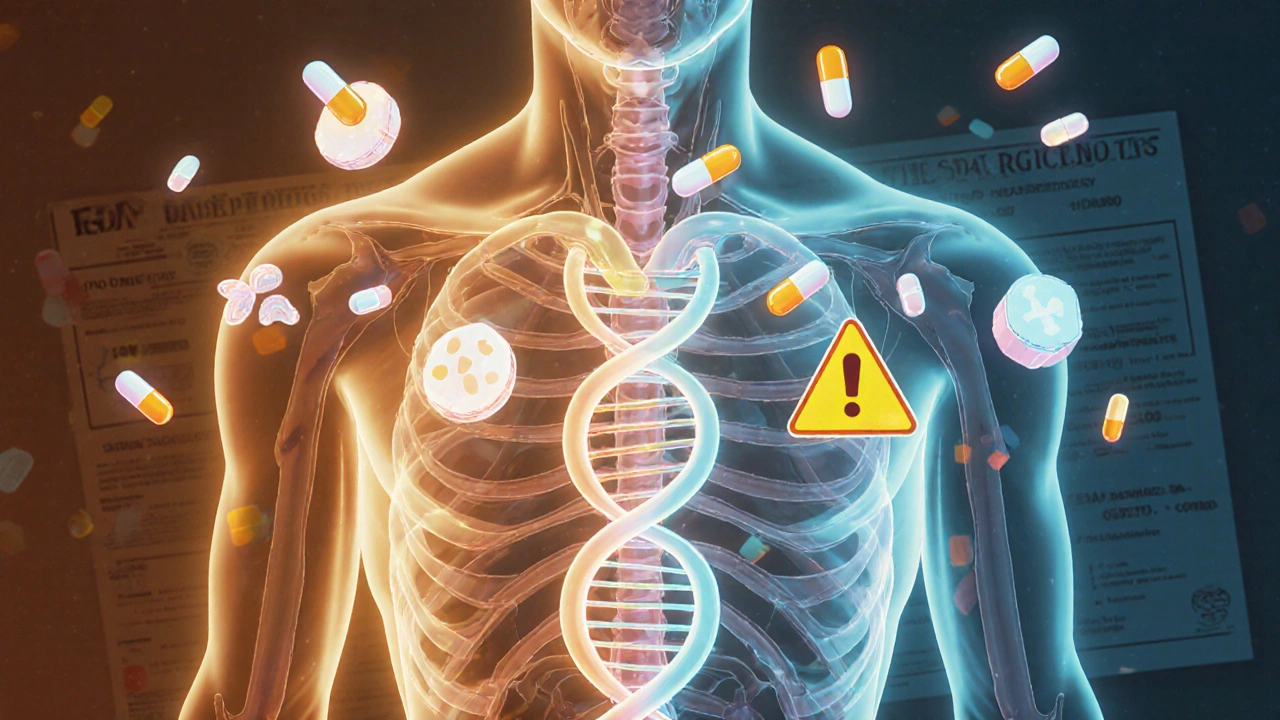CYP2D6: What It Is, How It Affects Your Medications, and Why It Matters
When you take a pill, your body doesn’t just absorb it and call it a day. CYP2D6, a liver enzyme responsible for breaking down over 25% of commonly prescribed drugs. Also known as cytochrome P450 2D6, it’s one of the most important players in how your body handles medication. If your CYP2D6 is super active, your body might clear the drug too fast—leaving you with no relief. If it’s slow, the drug builds up and could cause side effects you didn’t expect. This isn’t about dosage mistakes. It’s about your genes.
CYP2D6 doesn’t work alone. It’s part of a bigger system called pharmacogenetics, the study of how genes affect how your body responds to drugs. Think of it like a factory line: CYP2D6 is the worker who chops up the raw materials (your meds) so they can be used or flushed out. Some people have a fast worker, some have a slow one, and some have no worker at all. That’s why two people taking the same dose of antidepressant, beta-blocker, or painkiller can have totally different experiences. One feels better. The other feels sick. It’s not luck—it’s biology.
Many drugs you’ve heard of rely on CYP2D6. That includes codeine, which turns into morphine only if CYP2D6 activates it. If you’re a slow metabolizer, codeine won’t help your pain. If you’re ultra-fast, you might overdose on morphine without even knowing it. Same with tamoxifen, used for breast cancer—it needs CYP2D6 to become effective. And metoprolol, a heart drug? Too much builds up in slow metabolizers, causing dizziness or a dangerously low heart rate. Even antidepressants like fluoxetine and paroxetine? They’re processed by CYP2D6. That’s why some people need lower doses, and others need higher ones.
It’s not just about what you take—it’s about what you don’t take. Some foods, supplements, and other drugs can block CYP2D6. Grapefruit juice? It messes with other enzymes, but things like quinidine or bupropion? They directly shut down CYP2D6. So even if your genes are fine, your medication combo could be sabotaging your treatment.
You won’t find CYP2D6 on a standard blood test. But if you’ve had bad reactions to meds, or if your doctor says, ‘This drug just doesn’t seem to work for you,’ that’s a red flag. Testing for CYP2D6 variants is becoming more common, especially in mental health and cancer care. It’s not sci-fi—it’s science that’s already helping real people avoid trial-and-error medicine.
Below, you’ll find real-world examples of how CYP2D6 shows up in everyday treatments—from painkillers to heart meds to antidepressants. These aren’t theoretical discussions. They’re stories of people who got better once they understood their enzyme profile. Whether you’re on medication now or just curious why some drugs work for others and not you, this collection gives you the facts you need to ask the right questions.

Genetic Factors That Increase Susceptibility to Drug Side Effects
- by Colin Edward Egan
- on 29 Oct 2025
Genetic differences can make medications dangerous for some people and useless for others. Learn how genes like CYP2D6 and HLA-B*15:02 affect drug reactions, which side effects are most predictable, and what you can do to stay safe.
